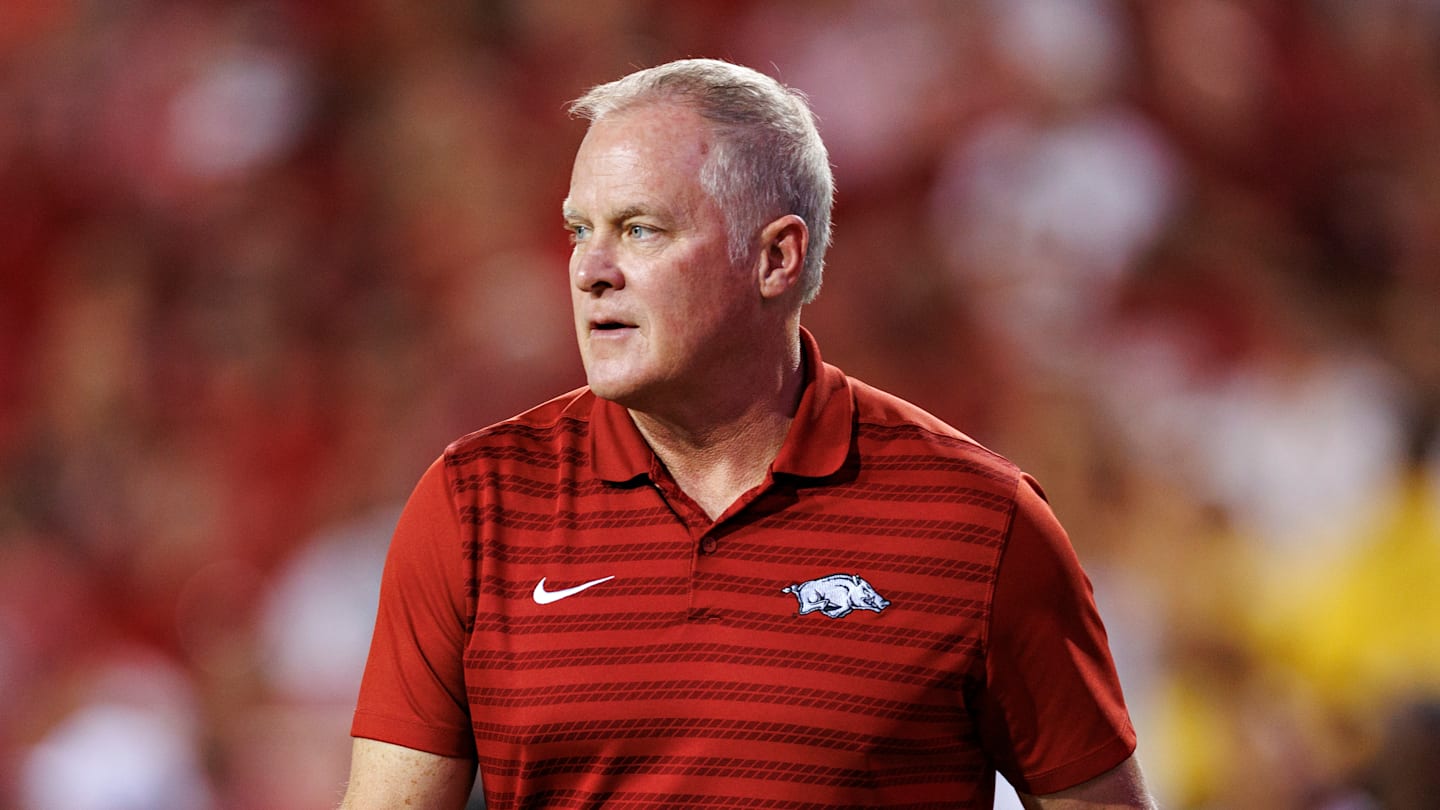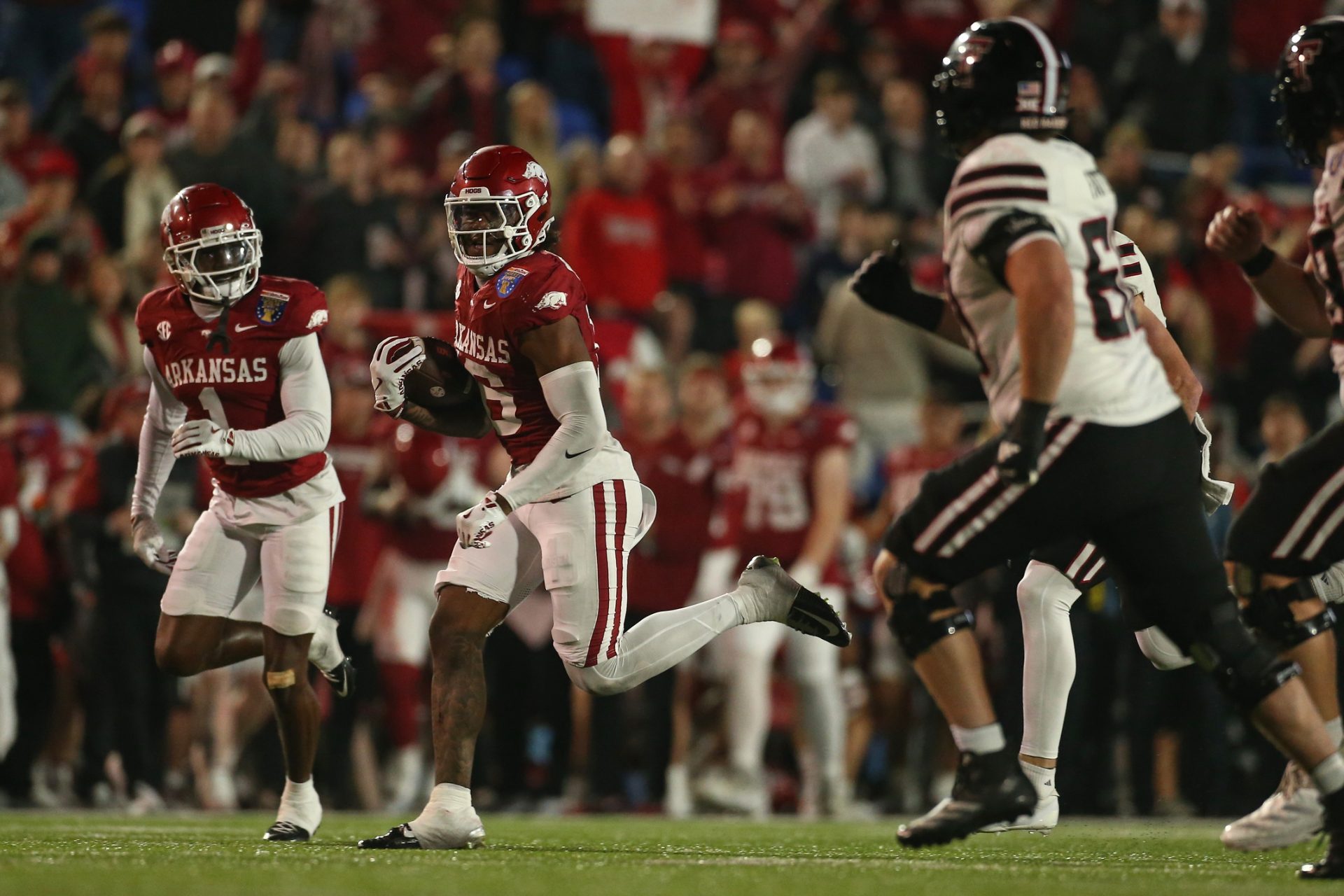Install the app
How to install the app on iOS
Follow along with the video below to see how to install our site as a web app on your home screen.

Note: This feature currently requires accessing the site using the built-in Safari browser.
-
New here? Register here now for access to all the forums, download game torrents, private messages, polls, Sportsbook, etc. Plus, stay connected and follow BP on Instagram @buckeyeplanet and Facebook.
You are using an out of date browser. It may not display this or other websites correctly.
You should upgrade or use an alternative browser.
You should upgrade or use an alternative browser.
Look Who's Transferring Now (The Portal)
- Thread starter ScriptOhio
- Start date
Well let's look at the bright side .... now we can crack the helmet of two I'maleaving players on Nov.15th. We all win.
Upvote
0
I posted a video of a coach talking about the new school should have to pay a buyout to the next school a player transfers to. It makes sense, it could slow some of the rampant tampering and random Portal entries
Upvote
0
I posted a video of a coach talking about the new school should have to pay a buyout to the next school a player transfers to. It makes sense, it could slow some of the rampant tampering and random Portal entries
A family that swindles together stays together?
Upvote
0
Get elected Senator.I need to find a job that pays me 200k to show up for 3 months then leave
Thats about what they make in base salary. The grift is way more.
Not sure they actually work for 3 months in any given year though.
Upvote
0
I'm pretty sure both senators and house reps get rich off insider trading and lobbying.
Our elected representatives? Using the office to enrich themselves? That would mean they don't actually really serve their constituents but are just in it for power and self interest.
Not sure I can buy that. It would mean the whole government is corrupt and untrustworthy.
Where would we be in this world if we couldn't count on our government to help us?
Upvote
0
ScriptOhio
Everybody is somebody else's weirdo.
I posted a video of a coach talking about the new school should have to pay a buyout to the next school a player transfers to. It makes sense, it could slow some of the rampant tampering and random Portal entries
A couple interesting articles on this:

Arkansas hits Madden Iamaleava with hefty demand letter for reneged NIL deal
after Madden Iamaleava leaves the Razorbacks high and dry, renegging on NIL deal, Arkansas is trying to recoup its money with a $200k demand letter
Arkansas hits Madden Iamaleava with hefty demand letter for reneged NIL deal
This one may get messy.Buckle up, folks. This Iamaleava saga may have only just started at Arkansas.
NIL has been a blessing for individual athletes all over the country—from the upper echelon of the SEC to the high school level. But the ugly side of NIL, the side of it that opponents forewarned, is finally rearing its head on the Hill. In a report by Front Office Sports' Amanda Christovich, Arkansas' collective (Arkansas Edge) has sent two letters to players demanding they fulfill their NIL buyout clauses.
Arkansas Edge sends demand letters for NIL agreement violations
On Tuesday, hours after Madden Iamaleava unexpectedly transferred from Arkansas to UCLA, athletic director Hunter Yurachek posted a graph stating his support for AR Edge seeking damages for student-athletes who violate agreements with the collective.
"I have spoken with the leadership team at Arkansas Edge and expressed my support in their pursuit to enforce their rights under any agreement violated by our student-athletes moving forward... we look forward to continued dialogue with all parties in resolving these matters."
The conclusion by many was that the post was a not-so-veiled threat directed at Iamaleava, which Christovich alludes to in her article. "Madden is one of several athletes who have violated the terms of Arkansas Edge...," wrote Christovich. However, the former Arkansas quarterback isn't the only transfer athlete feeling the newfound wrath of Arkansas' collective. Christovich wrote that two demand letters had already been sent to players but couldn't confirm if one was directed at Iamaleava.
On3 reporter Pete Nakos, on the other hand, has since reported that Iamaleava is indeed one of the two players mentioned. In fact, both are related to two freshmen who transferred, according to Nakos. If the other athlete is also a football transfer, most likely that means the other student-athlete is wide receiver Quentin Murphy, who entered the transfer portal six days prior to Iamaleava's departure. Moreover, Arkansas is reportedly seeking $200,000 specifically related to Iamaleava’s buyout.
What happens now?
Now that the collective has sent its demand letters, AR Edge will be compensated, right? As coach Lee Corso might say, "Not so fast, my friend!" According to attorney Darren Heitner, who has represented student-athletes in similar cases, suggests that buyouts framed as 'damages' often have better chances at a favorable outcome versus those framed as 'penalties.' The problem for collectives is then proving damages occurred.“The collective would need to be able to tell a court or an arbitrator that by no longer being able to use the athlete’s NIL rights, it will be damaged in some non-speculative amount," said another attorney, Mit Winter. "That could be hard for some collectives to do.”
.
.
.
continued

Will Arkansas Spur an NIL Buyout Crackdown?
Arkansas’ athletic director put his support behind the effort by the school’s NIL collective to enforce buyouts.
NIL Contract Buyouts Are More Common, but Can They Be Enforced?
In the pros, as well as with college coaches, buyouts are paid by the team or school the player transfers to. But in the NIL era, they work differently.On Tuesday, Arkansas quarterback Madden Iamaleava—the brother of new UCLA quarterback Nico Iamaleava—entered the transfer portal, presumably to join his brother in Westwood.
Hours later, Arkansas athletic director Hunter Yuracheck released a statement expressing his “support” for NIL collective Arkansas Edge’s “pursuit to enforce their rights under any agreement violated by our student-athletes moving forward.”
The statement was taken by many as a thinly veiled threat to Madden, who arrived in Fayetteville just a few months ago after decommitting from UCLA himself. He hadn’t played a down of regular-season football with Arkansas but had inked an NIL contract with Arkansas Edge.
In some ways, the speculation was correct: Madden is one of several athletes who have violated the terms of Arkansas Edge contracts by transferring before his contract was set to expire, prompting the collective to try to enforce a “buyout” clause, a source familiar with the situation tells Front Office Sports. The collective has since issued two demand letters to players to pay buyouts, the source said—though the source declined to confirm that Madden was one of them.
Arkansas isn’t the only collective seeking redress. Multiple sources told FOS that collectives are increasingly trying to recoup revenue from players who are utilizing new NCAA rules, which let athletes transfer as many times as they wish without penalty. “Buyouts are fairly common, especially with high-value athletes,” Russell White, president of The Collective Association, tells FOS. “They are now being included in more agreements.”
The key question is whether buyouts are enforceable.
In the pros, as well as with college coaches, buyouts are paid by the team or school the player transfers to. But in the NIL era, they work differently.
Usually, a collective will include a buyout clause requiring the player to either pay or return a certain amount of money to the collective if the player violates the terms of the agreement—usually if they leave schools before the lifetime of the contract ends, and therefore can’t complete all the requisite NIL activities. At Arkansas, for example, deals span one year, and buyouts require players to pay an amount equal to 50% of the remaining earnings through the lifetime of the contract, the source says.
The enforceability of the contract, however, depends partially on the language of the deal, sports lawyers tell FOS. Attorney Darren Heitner, who represents dozens of college athletes, says that buyouts framed as “penalties” are often less enforceable legally than buyouts framed as “damages.”
“I’m not willing to generalize and state that all buyouts are unenforceable,” Heitner says. “However, on the rare occasion that there has been a claim for repayment for one of my clients, that has been my conclusion based on the language of the agreement at issue as well as the specific facts of the situation at hand.”
.
.
continued
Just sayin': It will be interesting how this plays out.
Upvote
0
Upvote
0



